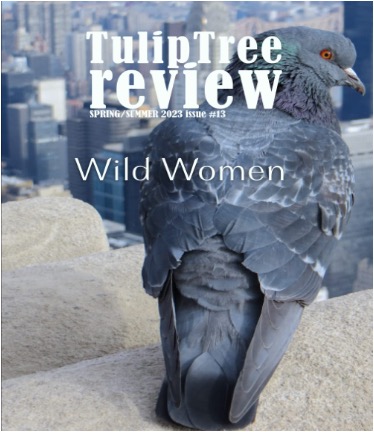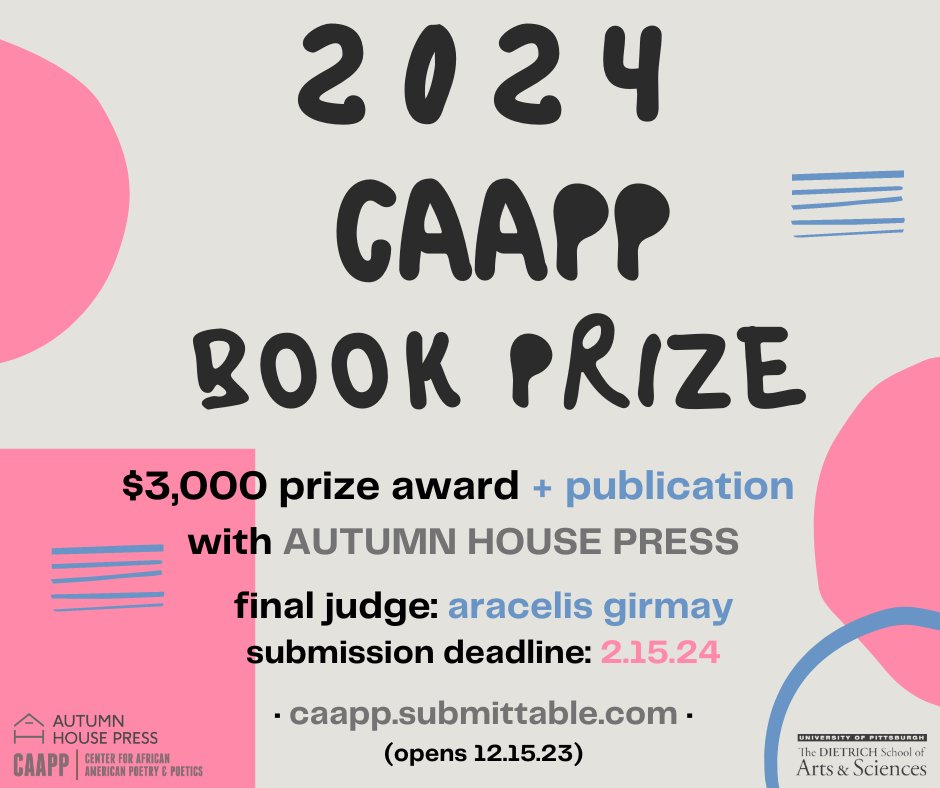Thanks to the extra fraction of a calendar day it takes Earth to orbit the sun each year, you have this leap year’s compensation day to apply to awards with deadlines on February 28 and February 29! Use that temps perdu to submit to contests offering prizes including $22,000 and publication for a nonfiction manuscript-in-progress that “emphasizes innovation in form and content”; $3,000, publication, and 20 author copies for a first or second poetry collection; and two prizes of $2,000 for a poetry e-book and a fiction e-book that depict “cultural, historical, and sociopolitical aspects of the Black Diaspora.” Best of luck!
Association of Writers & Writing Programs
Award Series
Three prizes of $5,500 each and publication by a participating press are given annually for a poetry collection, a short story collection, and a novel. A prize of $2,500 and publication by a participating press is also given annually for an essay collection or a memoir. Deadline: February 28. Entry fee: $30 ($20 for AWP members).
Austin Community College
Balcones Prizes
Two prizes of $1,500 each are given annually for a poetry collection and a book of fiction published during the previous year. English translations of works originally written in another language are accepted. Deadline: February 28. Entry fee: $25 for poetry and $30 for fiction.
Black Caucus of the American Library Association
Self-Publishing Literary Awards
Two prizes of $2,500 each are given annually for a poetry e-book and a fiction e-book self-published during the previous year by an African American writer. The awards honor books that depict “cultural, historical, and sociopolitical aspects of the Black Diaspora.” Deadline: February 28. Entry fee: None.
Graywolf Press
Nonfiction Prize
A prize of $22,000 (comprised of a $20,000 advance and a $2,000 research stipend) and publication by Graywolf Press will be given biennially for a nonfiction manuscript-in-progress that “emphasizes innovation in form and content” by a writer who is not yet established in the genre of nonfiction. The editors will judge. Deadline: February 28. Entry fee: None.
Little Tokyo Historical Society
Imagine Little Tokyo Short Story Contest
Two prizes of $500 each and publication in Rafu Shimpo and on the Discover Nikkei and Little Tokyo Historical Society websites are given annually for short stories that take place in the Little Tokyo district of Los Angeles and “capture the cultural spirit” of the neighborhood. One prize is given for a story written in English; the other is given for a story written in Japanese. Deadline: February 29. Entry fee: None.
Omnidawn Publishing
First/Second Poetry Book Contest
A prize of $3,000, publication by Omnidawn Publishing, and 20 author copies is given annually for a first or second poetry collection. Desirée Alvarez will judge. Deadline: February 29. Entry fee: $35.
Red Hen Press
Women’s Prose Prize
A prize of $1,000 and publication by Red Hen Press is given annually for a book of fiction or nonfiction by a writer who identifies as a woman. Laila Halaby will judge. Deadline: February 28. Entry fee: $25.
Tupelo Press
Snowbound Chapbook Award
A prize of $1,000, publication by Tupelo Press, and 25 author copies is given annually for a poetry chapbook. All entries are considered for publication. Deadline: February 28. Entry fee: $25.
Visit the contest websites for complete guidelines, and check out the Grants & Awards database and Submission Calendar for more contests in poetry, fiction, creative nonfiction, and translation.






